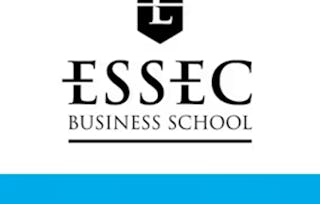Have you ever wondered what it would be like to be an entrepreneur? To start new ventures, build and grow them, be your own boss, create good jobs for other people, make money, and change the world for the better? Do you dream about becoming an entrepreneur but worry that it may be too difficult, require more resources than you have, or involve too much responsibility? Do you fear you don’t have what it takes, or that you might fail not just once, but over and over again?

Gain next-level skills with Coursera Plus for $199 (regularly $399). Save now.

Effectuation: Lessons From Expert Entrepreneurs

Instructor: Saras Sarasvathy
3,379 already enrolled
Included with
Recommended experience
What you'll learn
Lessons from expert entrepreneurs
A deep understanding of uncertainty
Real-life examples of new venture creation
Skills you'll gain
Details to know

Add to your LinkedIn profile
See how employees at top companies are mastering in-demand skills

There are 4 modules in this course
Welcome! In this course, you will see and hear from entrepreneurs and entrepreneurship educators as you explore four obstacles people commonly face when they think about starting a venture. You will learn the lessons that expert entrepreneurs have gained through their experiences building successful ventures. This week, you’ll explore the first obstacle people often face—how to get an idea—and learn about the five principles of effectuation. Then you’ll begin to identify your own bird-in-hand and use that to come up with ventures you could build.
What's included
10 videos4 readings3 assignments2 discussion prompts2 plugins
Early entrepreneurs often feel that they don’t have enough resources. This week you will learn not only about resources but the beginnings of productive relationships as you explore the next two principles of effectuation. Affordable Loss is about keeping the downside within your control so you are free to push the upside up. YOU get to choose whether and how much you are willing to lose. The Crazy Quilt principle is about bringing on self-selected stakeholders who will help increase your affordable loss and open up new upside possibilities.
What's included
9 videos2 readings3 assignments2 discussion prompts1 plugin
The lessons this week will take a deep dive into understanding entrepreneurial success and failure. Then through the Lemonade and Pilot-in-the-Plane principles, you will learn how to effectually manage and even leverage failures and co-create success.
What's included
8 videos2 readings3 assignments1 discussion prompt2 plugins
In situations of uncertainty, the five principles of effectuation can be applied individually, all together, or mixed and matched in various ways. You can even combine them with causal approaches. By looking at the early histories of most enduring ventures, we can see the principles coming together into an iterative process: an effectual cycle. You’ll end the course with a strong understanding of what expert entrepreneurs do as they start ventures.
What's included
9 videos3 readings3 assignments1 peer review1 discussion prompt1 plugin
Instructor

Offered by
Explore more from Entrepreneurship
 Status: Free Trial
Status: Free TrialUniversity of California, Irvine
 Status: Free Trial
Status: Free TrialMichigan State University
 Status: Preview
Status: PreviewESSEC Business School
 Status: Free Trial
Status: Free TrialTecnológico de Monterrey
Why people choose Coursera for their career




Frequently asked questions
To access the course materials, assignments and to earn a Certificate, you will need to purchase the Certificate experience when you enroll in a course. You can try a Free Trial instead, or apply for Financial Aid. The course may offer 'Full Course, No Certificate' instead. This option lets you see all course materials, submit required assessments, and get a final grade. This also means that you will not be able to purchase a Certificate experience.
When you purchase a Certificate you get access to all course materials, including graded assignments. Upon completing the course, your electronic Certificate will be added to your Accomplishments page - from there, you can print your Certificate or add it to your LinkedIn profile.
Yes. In select learning programs, you can apply for financial aid or a scholarship if you can’t afford the enrollment fee. If fin aid or scholarship is available for your learning program selection, you’ll find a link to apply on the description page.
More questions
Financial aid available,
¹ Some assignments in this course are AI-graded. For these assignments, your data will be used in accordance with Coursera's Privacy Notice.





